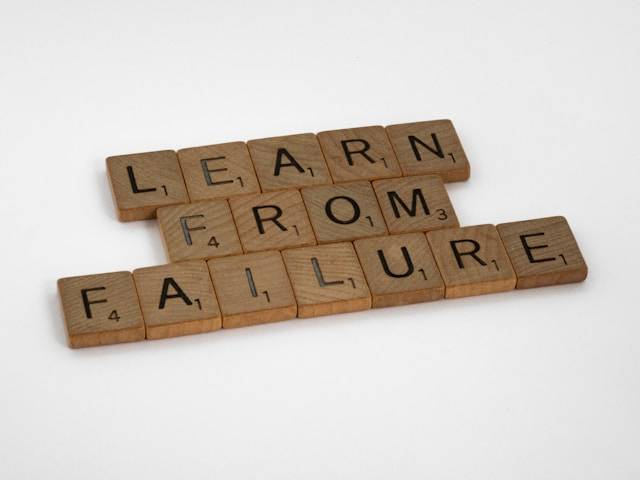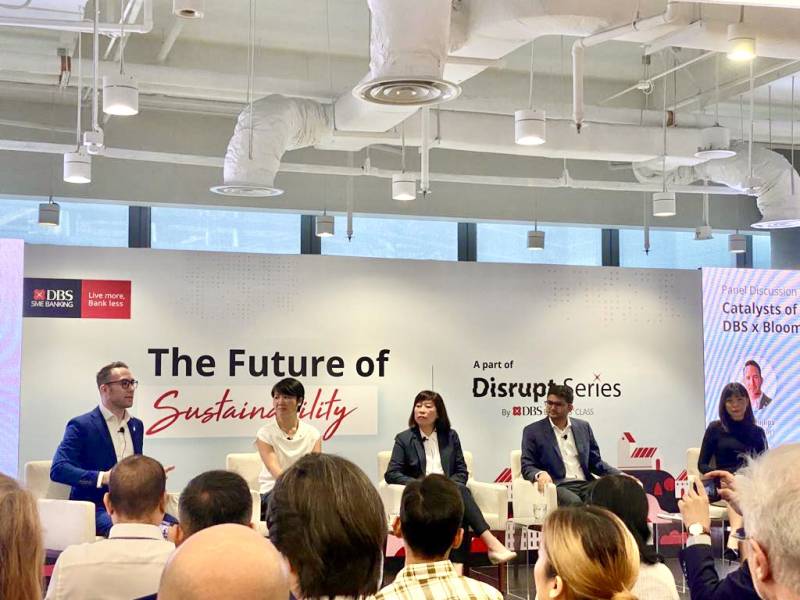Over the past five years, the workplace has undergone an unprecedented transformation in how we work. Traditional workspaces have evolved to prioritise collaboration, well-being, and work-life balance, reflecting an evolving corporate culture. Concurrently, the influx of millennials into the workforce and their ascension to leadership roles has shifted the dialogue towards prioritising purpose in one’s career, challenging conventional career paths and seeking a new definition of success.
As we mark Labour Day 2024, the LivingWord Communications (LWC) team took the opportunity to reflect on our diverse career paths and the insights garnered from our collective experiences. We've distilled these key takeaways that have steered us through the various career stages:

#1: Take Ownership of Your Professional Identity and Career Progression
Transitioning from student to working adult can be more challenging for some than others. Undergraduates with internship experience have a head start in shaping their professional identity. In contrast, others who enter the working world after graduation might find it a more challenging shift.
Natalie Seet, Account Coordinator, believes that viewing one’s career as an integral component of one’s self-identity instead of a separate entity is crucial for fostering the motivation to take ownership of it. “As a junior professional starting work after more than 10 to 15 years as a student, it was at times difficult to truly see the importance of planning and investing in my career for the long-term, despite many adults repeatedly emphasising its importance. It was only when I was able to see my career not as a separate part of my life but intertwined with who I am – as a reflection of my life, interests, values, etc., that I began to see the value of charting my own professional path and building my professional identity.”
Natalie also shares that the conversations she had with the people around her, both young and old, allowed her to change her understanding of work and find the motivation to own her career. “The valuable insights [these people have] shared with me about their professional lives made me interested in discovering what that sort of hunger and passion for life looked like in myself,” she recounts.
Nevertheless, it is still an uphill climb for those who are more advanced in their career paths to solidify a professional identity. A common hurdle is the cultivation of a professional presence and voice. Jocelyn Ng-Foo, Managing Partner, shares, “For all the introverts out there - Speak up and be counted. I struggled with this one as personality traits take years to change and evolve. The progress has been slow, but the persistent effort has paid off. I’ve grown more comfortable with more practice, although it’s always easy to slip back into default mode”.
It is important for young professionals to carefully consider their aspirations for their professional identity at this early stage in their career. “Reputation takes decades to build but can be ruined overnight”, Jocelyn highlights. “Your reputation sticks with you, whereas your job doesn’t. Consider the kind of reputation you want to be known for and work towards making that a reality.”
Because we invest so much into our professional reputation, it is inevitable that the competitive nature of the workplace will surface these differences. Nevertheless, Jocelyn cautions against being caught in the comparison trap, as “[there] will always be others who are brighter, smarter and more successful than you. Conversely, there will be others who may be less ‘advanced’ than you. Focus on bettering yourself [and] competing against your last performance. Your past track record proves you can deliver consistently now and into the future.”

#2: Cultivate a Continuous Personal Learning Journey
Unlike life in academia, working professionals need to be self-taught, spearheading our learning pathway, and continue developing and upskilling. Shawn Foo, Head of HR and Finance, shares that he could have been more ‘[hungry]’ to learn in his early days as a young professional. “In retrospect, I could have been more bold in asking questions and more courageous and willing to accept challenging tasks given by my superiors. If I had done that, I could have learnt more things and gained more knowledge through many of these experiences. Over time, these opportunities could have helped me fast-track my personal development and career.”
Echoing this, Jocelyn shares about the need to intentionally seek personal development opportunities. “True learning begins after formal education. The formal schooling years prepare us for the learning journey ahead, and we need to self-initiate and sustain. To embrace lifelong learning, there must be a hunger to learn, grow, adapt and take on new challenges.” She recounts, “The opportunity cost that I’d invested to pursue an MBA full-time has been invaluable in that it gave me the confidence to take on more challenges, not to mention having to build my foundation in finance and business strategy.”

#3: Learn from Mistakes, Failure and Criticism
As the Chinese idiom “失败乃成功之母” (which loosely translates to “failure is the mother of success”) suggests, there can be no success without failure. If we can view the ‘mistakes’ in our careers as opportunities and motivations for further growth, we can reframe our failures, turning them into lessons that pave the way for future successes.
“The mistakes are worthwhile only if you learn from them,” remarked Lim Chwen Yiing, Director. She expounds on what a positive attitude to failure did for her in her professional career, “Nobody learns without getting it wrong. I am grateful for the mistakes and blunders made in my younger years (on hindsight, of course!). They offered valuable lessons and never failed to serve as a reminder and motivation to pick myself up when down.”
Vanessa Ronald, Account Executive, similarly echoes the importance of growing comfortable with mistakes, “Growing up within Singapore’s competitive education system, feelings of ‘failing’ or making mistakes can be highly uncomfortable to sit with. As such, letting go of the fear of criticism was challenging because it often felt hard to separate critique of our work from critique of ourselves. As much as I realise that “work is just work” and to separate the work from the larger self-identity, it sometimes feels like the two are inextricably tied together. It is a delicate balance between wanting to give my best in everything I do and being aware that my identity and self-worth go beyond what I do at work.”
Sometimes, career failures occur outside of our control, such as retrenchments. Jocelyn recounts her experience, “Having been retrenched thrice, it’s been a hard lesson to learn repeatedly in different situations. By God’s leading, the result of each round of retrenchment allowed me to pivot my career to accelerate it in the next role. During the transition, there was only angst and anxiety. But with hindsight, I can see that God’s hand was moulding me through each career season in preparation for the next phase.”
While our workplace challenges are vastly different from those who have gone before us, we have a better appreciation and deeper sense of gratitude as we follow in their footsteps. Undoubtedly, the meaning of work changes across generations, but one thing we all have in common is the necessity for tenacity and grit to push through challenges and come out stronger on the other side.
Regardless of where we are in our careers, let us continue to encourage one another, especially the upcoming Gen Zs, as they chart their career pathway.
Happy Labour Day!
